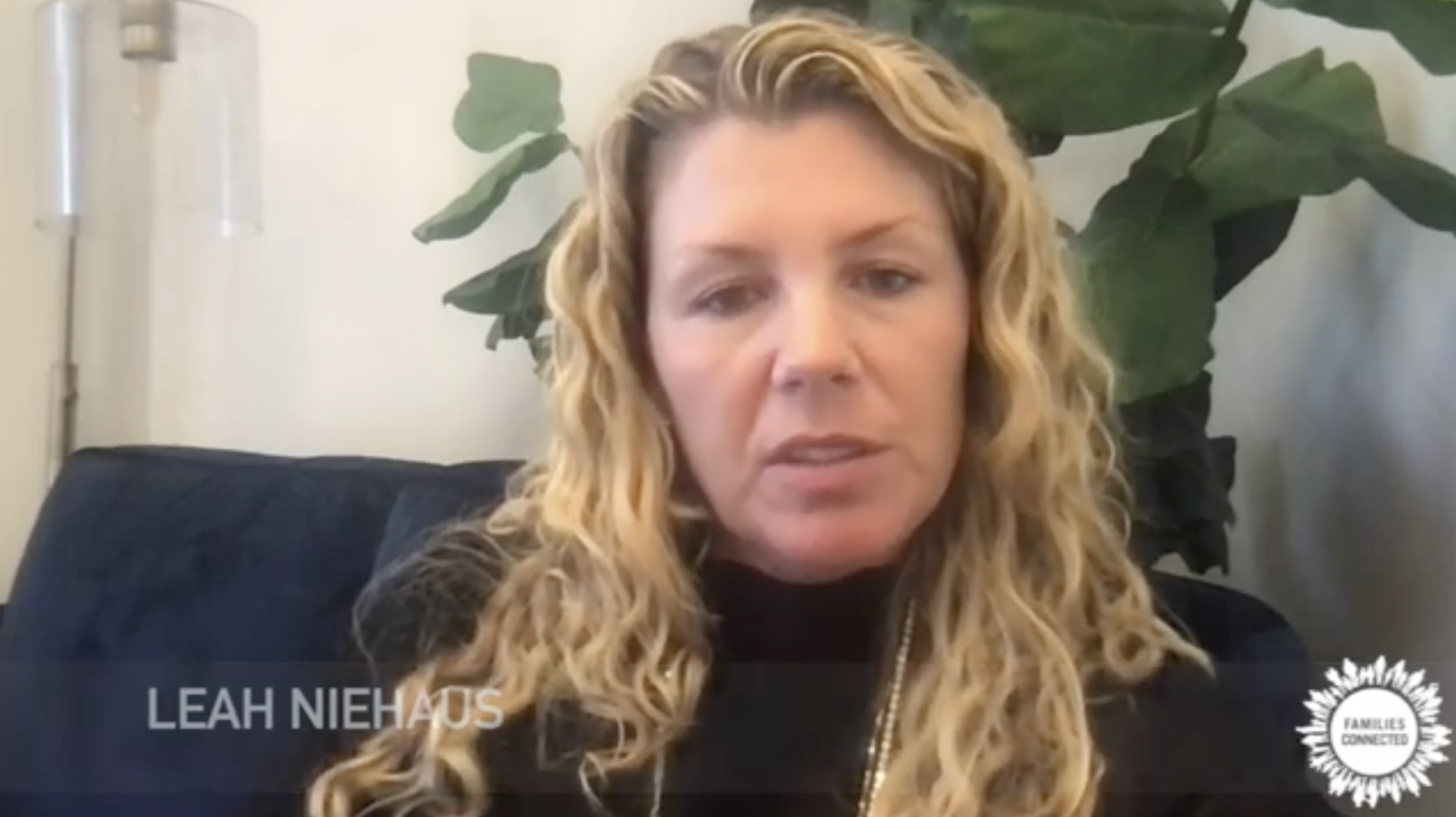In the wake of a crisis or tragic event, like the devastating fires in Los Angeles, parents and caregivers may struggle with how to best communicate with and support their children. On this page, experts share tips and tools to initiate the conversation, use age appropriate language, correct misinformation and validate our children’s feelings. Equally important, to check-in with ourselves first. For instructions to view this page in Spanish, click on en Español.
Families Connected Resources
Strategies to effectively talk with children and teens during crisis
School Threats: advice from Leah Niehaus, LCSW to support your children.
Any traumatic event: advice from Anna Pirkl, M.A., MFT, ATR, LAADC, featuring specific tips for parents and caregivers to connect with their children during times of trauma or uncertainty.
Tips to talk about it
Click on image to enlarge
Featured blogs
Kim Digilio
What Could Have Been, by Kim Digilio
Creating Connection with Your Kids: Building a Shelter of Trust and Support, by Kim Digilio
When to Sit in the Ick, by Jill Millstein
Currated National Resources
Helping youth manage overwhelming emotions
How to Ask What Kids Are Feeling (Child Mind Institute)
Guide: Helping Children Cope After a Trauma - Age specific and in all languages (Child Mind Institute)
Discussing school safety
click on image to enlarge
Click on the image to enlarge a helpful pdf, or Access the full article, Talking with Children About Violence from NASP, including translations in other languages.
School Security Measurers and Their Impact on Students (NASP)
Mitigating Negative Psychological Effects of School Lockdowns (NASP)
Prevent Gun Violence by Knowing the Signs (Sandy Hook Promise)
Natural Disasters: Talking guides and emotional support for children
click on image to enlarge
Click on the image to access advice from National Association of School Psychologists (NASP) on how to help children after a natural disaster.
The Child Care Resource Center (CCRC) offers current information, tips and insight for parents to help their children during this challenging time.
The National Child Traumatic Stress Network (NCTSN) provides a PDF with Parent Guidelines for helping children affected by the wildfires.
The Center for Connection provides a resource list that includes emotional support and messaging for children.
Click on the Good Inside pdfs provided below for talking scripts and insight.
Supporting youth during times of war and terrorism
Explaining the News to Our Kids (Common Sense Media)
What to Say When the News Is Scary (NPR Lifekit)
How to Talk to Kids About Violence, Crime, and War (Common Sense Media)
Anger Can Be Contagious - Here’s How to Stop the Spread (KQED/MindShift)
Helping Children Cope With Terrorism: Tips for Families and Educators (National Association of School Psychologists)
Terrorism and War: How to Talk to Children (American Academy of Child & Adolescent Psychiatry)
Table Talk: Family Conversations About Current Events (The ADL)
Tips for Talking with Children and Youth After a Traumatic Event - age specific PDF (SAMHSA)
5 Tips for Talking with Kids About What’s Going On (Greater Good Magazine)
Talking to Children About Violence: Tips for Parents and Teachers (National Association of School Psychologists)
Talking with our children about racism, hate and violence
Click on image to enlarge
Talking to Children After Racial Incidents (Penn GSE)
Talking with Kids About Hate in Media (Media Smarts)
Discussing Hate and Violence With Children: A guide and downloadable brochure in English or Spanish (The ADL)
Talking with Your Children About Tragic Events (The Dougy Center)
What Estranged Families Can Teach Us About the Political Divide (Greater Good Magazine)
Talking with your children in the aftermath of gun violence
How to Help Children Cope with a Gun Violence Tragedy (Sandy Hook Promise)
Helping Children Manage Distress in the Aftermath of a Shooting (American Psychological Association)
How to talk to children about shootings: An age-by-age guide (Today.com)
How to Talk to Kids About School Shootings (Child Mind Institute)
What to Say to Kids About School Shootings to Ease Their Stress (NPR)
Nine Tips for Talking to Kids About Trauma (Greater Good Science Center)
A PDF on Talking to Kids About School and Community Shootings (National Center for School Crisis and Bereavement)
Helping youth discern between fact and fiction
Click on tHe Image to Enlarge
Best News Sources for Kids by age (Common Sense Media)
How to Think Like a Fact Checker (Screenagers)
Help Students Fact Check the Web Like Pros (Common Sense Media)
Teens Need To Be Able To Discern Fact from Fiction (Education Week)
Real News, Fake News or Opinion - Teaching our Students to Discern the Difference (KQED)
Support
SAMHSA’s Disaster Distress Helpline provides counseling and support to people experiencing emotional distress. Call or text 1-800-985-5990. Click on accompanying image for more information.
For free counseling services and support groups for South Bay students, visit allcove Beach Cities.
Related Families Connected Resources
Related resources for parents and guardians
Access resources created for teens
For More Youth Wellness Resources, Visit:
For South Bay parents and caregivers
Go to South Bay Families Connected for educational events, the Virtual Teen Center, the SBFC monthly parent e-newsletter, and more. For mental health referrals and support groups, go to Beach Cities Health District.
For parents and caregivers in the U.S.A.
Visit the Families Connected landing page for non-region-specific, free youth wellness online resources.






